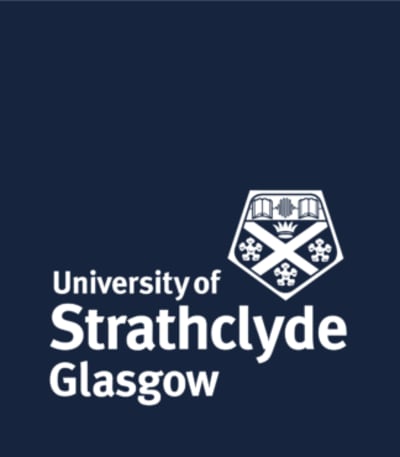
MSc Business Analysis and Consulting
University of Strathclyde Business School

Key Information
Campus location
Glasgow, United Kingdom
Languages
English
Study format
Distance Learning, On-Campus
Duration
12 months
Pace
Full time
Tuition fees
GBP 12,250 *
Application deadline
Request info
Earliest start date
Request info
* Scotland, England, Wales & Northern Ireland | £23,200 International
Introduction
Study with us
- Gain practical, evaluative, and analytical skills
- Learn how to use business models to develop strategies for organizations
- Work on a project for a leader organization
Why this course?
The MSc in Business Analysis & Consulting has been developed to equip you with the practical, evaluative, and analytical skills to allow you, as a future manager or consultant, to influence and develop strategy and performance within organizations.
You'll learn the key quantitative business analysis methods necessary to evaluate performance.
Industry involvement is at the heart of the course. You'll spend three weeks in January on a work placement, and have the opportunity to undertake your summer project in collaboration with an external organization.
In addition, you'll learn how to use business models to support the development of a strategy for organizations and to help them monitor and measure strategic processes.
By the end of the program, you'll have developed the key skills of business consulting, which are applicable to any organization.
Admissions
Curriculum
What you'll study
The core Becoming an Effective Business Analysis class runs over both semesters and provides you with a practical environment to apply business analysis and consulting tools from other classes to challenging real problems offered by industrial clients.
Semester 1 is designed to provide you with the fundamental technical and soft knowledge required for a business analyst/consultant. This includes key skills to structure client problems, analyse hard/soft data, build forecasting models and manage operations.
Semester 2 is designed to extend your core skills and provide you with opportunities through a broad range of electives to help you have specialised knowledge in areas such as risk analysis, strategy modelling, big data analytics and business simulation. You also have the opportunity to study a business class offered by other departments in Strathclyde Business School during the Spring School.
Becoming an Effective Business Analyst
This class takes place over both semesters and also involves the ‘apprenticeship scheme’. Every year, case studies and challenging projects are presented to you by organisations such as Accenture, British Airways, RBS and Simul8, NHS, Diageo, Valentia Partners.
Summer project
Many MSc projects are carried out for an external organisation. You'll spend three months from June to September working on a project of importance to their clients. The aim is to gain direct experience in applying the concepts and theories studied on the course. Project clients include many major companies, in fields ranging from aerospace to whisky distilling. These projects will usually be unpaid, however, all costs such as travel and accommodation will normally be covered by the host organisation if out of town.
Distance learning
We also offer the course via online distance learning so you can study when it suits you. This is a flexible degree and the duration can vary.
Course content
Core classes
- Becoming an Effective Business Analyst
- Foundations of Operational Research & Business Analysis
- Managing Business Operations
- Quantitative Business Analysis
- Spreadsheet Modelling & Demand Forecasting
- Strategy Modelling & Management
Elective classes
Choose three
- Business Analytics
- Business Information Systems
- Business Simulation Methods
- Performance Measurement & Management
- Risk Analysis & Management
- SBS Spring School Module
Dissertation (MSc only)
The MSc project is the most substantial and independent piece of work you'll carry out during the course. You will contact your client and your supervisors and manage the whole relationship with them. The projects vary but they typically involve understanding the real-life problem through problem structuring, identifying the data requirements, review of the relevant domain literature, making methodological choices based on arguments from the methodology literature, data collection, appropriate data analysis and modelling, developing and presentation of findings and recommendations.
Learning & teaching
Core and elective classes will be taught across two semesters running from September to December and January to March. Classes will be taught through a combination of lectures and hands-on software sessions, alongside online material, with a variety of group and individual studies and assignments. The project/dissertation is undertaken during the summer months.
Assessment
Classes are assessed by various methods, including written assignments, exams, practical team projects, presentations and individual projects. Exams will take place at the end of each semester in December and April/May.
Career Opportunities
The combination of the quantitative and qualitative skills learned, along with the real experience of working with various clients' problems throughout the course, will make you attractive to employers. By the end of the programme, you'll be well placed for a client focused career by providing model-based decision support to management at a strategic and operational level. For the last decade, our graduates have been able to find jobs across different sectors from the oil and gas industry, and hospitality to junior and senior consultancy roles.
Examples of graduate employers include:
- NHS
- PWC
- SYSTRA
- Scottish Enterprise
- British Petroleum
- Hilton Worldwide
- Mabbett
- Valentia Partners
- RBS
- North Highland
Program Tuition Fee
Scholarships and Funding
Scottish postgraduate students
Scottish postgraduate students may be able to apply for support from the Student Awards Agency Scotland (SAAS). The support is in the form of a tuition fee loan and for eligible students, a living cost loan.
Students coming from England
Students ordinarily resident in England may be to apply for postgraduate support from Student Finance England. The support is a loan of up to £10,280 which can be used for both tuition fees and living costs.
Students coming from Wales
Students ordinarily resident in Wales may be to apply for postgraduate support from Student Finance Wales. The support is a loan of up to £10,280 which can be used for both tuition fees and living costs.
Students coming from Northern Ireland
Postgraduate students who are ordinarily resident in Northern Ireland may be able to apply for support from Student Finance Northern Ireland. The support is a tuition fee loan of up to £5,500.
International students
We have a large range of scholarships available to help you fund your studies.
Gallery
Accreditations
Student Testimonials
English Language Requirements
Certify your English proficiency with the Duolingo English Test! The DET is a convenient, fast, and affordable online English test accepted by over 4,000 universities (like this one) around the world.
Program Admission Requirements
Demonstrate your commitment and readiness to succeed in business school by taking the GMAT exam – the most widely used exam for admissions that measures your critical thinking and reasoning skills.
Download the GMAT mini quiz to get a flavour of the questions you’ll find in the exam.